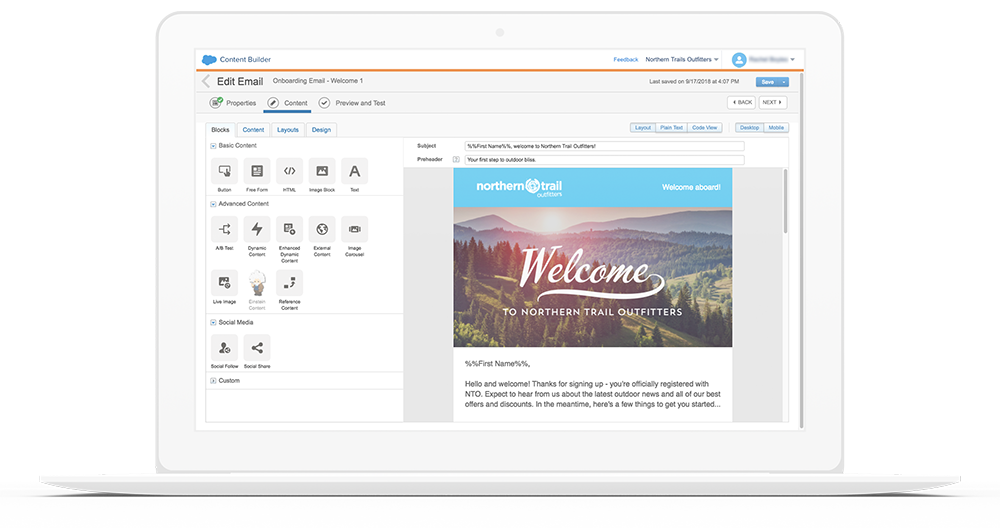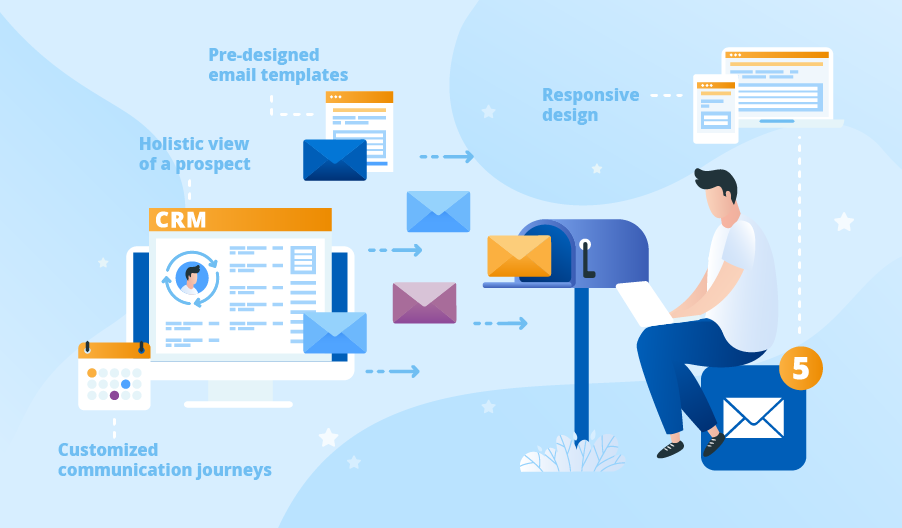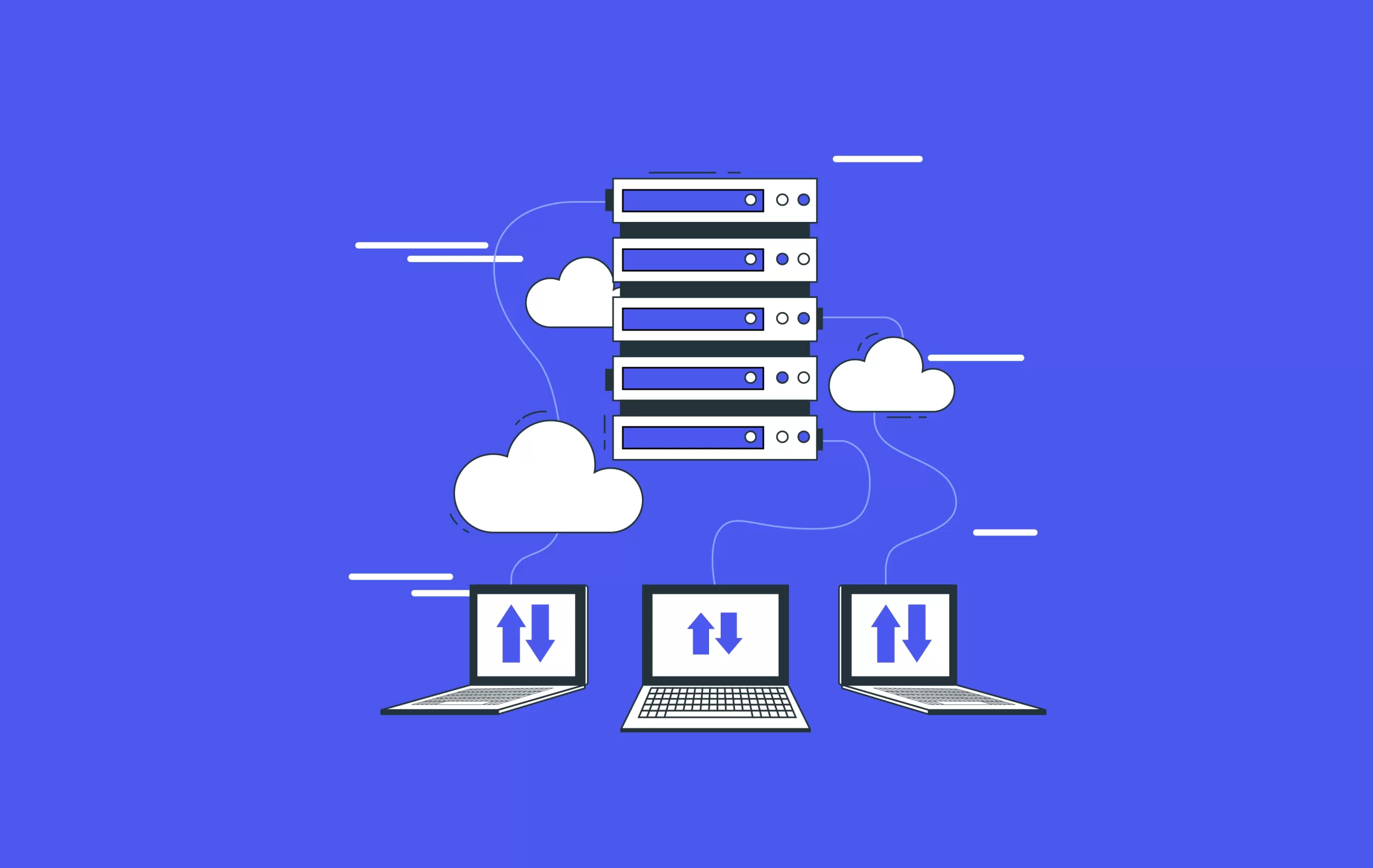Understanding Salesforce CRM
What is Salesforce CRM?
Salesforce CRM, or Customer Relationship Management, is a software platform developed by Salesforce that helps businesses manage their interactions and relationships with current and potential customers. It offers a centralized hub where businesses can store and analyze customer data, track sales activities, manage marketing campaigns, and provide customer support. Essentially, Salesforce CRM allows organizations to streamline their processes, improve efficiency, and enhance customer satisfaction.
Key Features and Benefits
- Contact Management: Salesforce CRM allows businesses to store detailed information about their customers, including contact details, communication history, preferences, and more.
- Sales Automation: The platform enables sales teams to automate repetitive tasks, such as lead management, opportunity tracking, and quote generation, freeing up time to focus on building relationships and closing deals.
- Marketing Automation: Salesforce CRM integrates with marketing tools to automate campaign management, lead nurturing, and analytics, helping businesses generate and nurture leads more effectively.
- Customer Service: With Salesforce CRM, businesses can provide personalized and efficient customer support through various channels, such as email, phone, chat, and social media, leading to higher customer satisfaction and retention.
- Analytics and Reporting: The platform offers robust analytics and reporting capabilities, allowing businesses to gain valuable insights into their sales, marketing, and customer service performance, identify trends, and make data-driven decisions.
- Mobile Access: Salesforce CRM is accessible via web browsers and mobile devices, enabling users to access important customer information and perform tasks on the go.
Importance of CRM in Marketing
CRM plays a crucial role in marketing by helping businesses better understand their customers, personalize marketing efforts, and optimize campaigns. Some key aspects of CRM in marketing include:
- Customer Segmentation: By segmenting customers based on demographics, behavior, and preferences, businesses can tailor their marketing messages and offers to specific audience segments, increasing relevance and engagement.
- Lead Management: CRM allows businesses to track and manage leads throughout the sales funnel, from initial contact to conversion, ensuring that marketing efforts are focused on the most promising prospects.
- Personalization: With access to detailed customer data, marketers can create personalized experiences for their audience, such as targeted emails, recommendations, and promotions, leading to higher response rates and conversions.
- Campaign Tracking and Analysis: CRM provides insights into the performance of marketing campaigns, including metrics such as open rates, click-through rates, and conversion rates, allowing marketers to assess effectiveness, identify areas for improvement, and optimize future campaigns.
- Customer Retention: By maintaining strong relationships with existing customers and providing ongoing value and support, businesses can increase customer loyalty, repeat purchases, and referrals, ultimately driving long-term revenue growth.
Challenges Without Integration
One of the key challenges businesses face without integrating their CRM system, such as Salesforce CRM, with other systems and applications is data silos. Data silos occur when information is scattered across different platforms and departments, making it difficult to access, share, and analyze. This can lead to inefficiencies, duplication of efforts, and inconsistencies in customer interactions.
Without integration, businesses may also struggle with:
- Limited Visibility: Without a unified view of customer data, businesses may miss opportunities to understand customer needs, preferences, and behaviors, hindering their ability to personalize interactions and provide targeted offers.
- Manual Processes: Without automation and integration, tasks such as data entry, lead management, and reporting may require manual effort, leading to errors, delays, and decreased productivity.
- Ineffective Communication: Lack of integration can result in disconnected communication channels between sales, marketing, and customer service teams, leading to misalignment, duplication of efforts, and poor coordination.
- Inefficient Decision-Making: Without access to real-time, integrated data and analytics, businesses may struggle to make informed decisions, hindering their ability to respond quickly to market changes and opportunities.
The Power of Email Marketing
Why Email Marketing Matters:
Email marketing matters because it provides a direct line of communication between businesses and their audience. Unlike social media platforms or search engines, where algorithms determine who sees your content, email marketing allows you to reach your subscribers directly in their inbox. This direct connection enables businesses to nurture relationships, build trust, and drive conversions.
Benefits of Email Marketing:
- Targeted Communication: Email marketing allows businesses to segment their audience based on various criteria such as demographics, past purchases, or engagement history. This targeted approach ensures that messages are relevant to the recipient, increasing the likelihood of engagement.
- Cost-Effectiveness: Compared to traditional marketing channels like print or television advertising, email marketing is highly cost-effective. Businesses can reach a large audience with minimal investment in resources.
- Measurable Results: Email marketing platforms provide comprehensive analytics that allow businesses to track metrics such as open rates, click-through rates, and conversion rates. This data enables marketers to measure the effectiveness of their campaigns and make data-driven decisions to optimize future efforts.
- Automation: Automation tools make it easy to set up automated email campaigns triggered by specific actions or events, such as welcome emails for new subscribers or abandoned cart reminders. Automation helps businesses streamline their marketing processes and deliver timely, relevant messages to their audience.
Challenges in Email Marketing:
- Deliverability: One of the primary challenges in email marketing is ensuring that emails reach the recipient’s inbox and avoid being marked as spam. Marketers must adhere to best practices for email authentication, list hygiene, and content quality to maintain good deliverability rates.
- Overcoming Inbox Competition: With the average person receiving dozens of emails per day, standing out in a crowded inbox can be challenging. Marketers must focus on crafting compelling subject lines and relevant content that grabs the recipient’s attention and encourages them to engage with the email.
- Maintaining Engagement: Keeping subscribers engaged over time is crucial for the success of email marketing campaigns. Marketers need to consistently deliver valuable content that resonates with their audience and encourages them to take action.
The Role of Personalization:
Personalization is a key driver of success in email marketing. By tailoring content to the individual preferences and interests of subscribers, businesses can create more relevant and engaging experiences. Personalization can take various forms, including dynamic content based on past behavior, personalized product recommendations, or targeted offers based on demographic information. Leveraging data and analytics, businesses can segment their audience and deliver highly targeted messages that resonate with each recipient, ultimately driving higher engagement and conversions.
Benefits of Integrating Salesforce CRM with Email Marketing
Integrating Salesforce CRM with email marketing offers a plethora of benefits that can significantly enhance the effectiveness of marketing efforts and improve overall customer experience.
- Enhanced Data Management: Integrating Salesforce CRM with email marketing allows for seamless synchronization of customer data between the two platforms. This means that all relevant customer information, including contact details, purchase history, preferences, and interactions, is readily available within the email marketing platform. Having a centralized repository of data ensures consistency and accuracy, enabling marketers to make data-driven decisions and personalize email campaigns effectively.
- Improved Targeting and Segmentation: With access to comprehensive customer data, marketers can create highly targeted and segmented email campaigns. Salesforce CRM provides robust segmentation capabilities based on various criteria such as demographics, behavior, and purchase history. By leveraging this data, marketers can tailor their email content and offers to specific audience segments, resulting in higher engagement rates and conversions.
- Streamlined Workflows and Automation: Integrating Salesforce CRM with email marketing enables automation of repetitive tasks and workflows. Marketers can set up automated email campaigns triggered by specific events or actions, such as new leads, purchases, or abandoned carts. This streamlines the marketing process, saves time, and ensures timely communication with prospects and customers, ultimately improving efficiency and productivity.
- Better Campaign Tracking and Reporting: Salesforce CRM provides robust analytics and reporting capabilities that allow marketers to track the performance of their email campaigns in real-time. By integrating email marketing data with CRM data, marketers gain valuable insights into campaign effectiveness, open rates, click-through rates, conversion rates, and more. This data-driven approach enables marketers to identify areas for improvement, optimize campaign strategies, and demonstrate the ROI of their marketing efforts.
- Enhanced Customer Experience: Integrating Salesforce CRM with email marketing enables marketers to deliver personalized and relevant content to each recipient, based on their preferences, behavior, and interactions with the brand. By sending targeted and timely messages, marketers can nurture leads, build stronger relationships with customers, and enhance overall satisfaction and loyalty. This personalized approach fosters a positive customer experience, driving engagement and long-term loyalty.
Integrating Salesforce CRM with email marketing offers numerous benefits that can help marketers streamline processes, improve targeting and segmentation, enhance data management, and ultimately deliver a superior customer experience. By leveraging the combined power of CRM and email marketing, businesses can drive better results and achieve their marketing objectives more effectively.
Best Practices for Salesforce CRM Email Marketing Integration
Aligning Sales and Marketing Teams:
Successful email marketing integration with Salesforce CRM starts with aligning the goals and strategies of the sales and marketing teams. Both teams should work together to understand the target audience, messaging, and campaign objectives. This alignment ensures that the marketing campaigns are designed to support the sales efforts effectively.
Ensuring Data Quality and Consistency:
Data quality is crucial for effective email marketing campaigns. Salesforce CRM provides a centralized database for storing customer data. It’s essential to ensure that the data within Salesforce is accurate, up-to-date, and consistent. This involves regular data cleansing, deduplication, and validation processes to maintain data integrity. Consistent data ensures that the right messages are delivered to the right audience at the right time.
Implementing Robust Segmentation Strategies:
Segmentation allows marketers to divide their audience into specific groups based on demographics, behavior, or other criteria. Salesforce CRM provides powerful segmentation capabilities that enable marketers to target their email campaigns more effectively. By segmenting the audience, marketers can deliver highly relevant and personalized content, which leads to better engagement and conversion rates.
Leveraging Automation for Efficiency:
Automation streamlines the email marketing process by automating repetitive tasks such as sending welcome emails, follow-ups, and nurturing sequences. Salesforce CRM offers automation features like workflows, triggers, and email templates, which can be used to automate various aspects of the email marketing workflow. By leveraging automation, marketers can save time, reduce manual errors, and ensure timely delivery of messages.
Personalizing Email Campaigns:
Personalization is key to creating meaningful connections with customers. Salesforce CRM enables marketers to personalize email campaigns based on customer data, preferences, and past interactions. This can include personalizing the subject lines, content, and offers to resonate with each recipient individually. Personalized emails are more likely to grab the recipient’s attention and drive engagement and conversions.
Steps for Integrating Salesforce CRM with Email Marketing Platforms
Integrating Salesforce CRM with email marketing platforms can streamline your marketing efforts and improve customer engagement.
Assess Your Needs and Objectives:
Before integrating Salesforce CRM with an email marketing platform, it’s crucial to assess your organization’s needs and objectives. Determine what you aim to achieve with this integration, such as improving lead generation, nurturing customer relationships, or increasing sales conversions. Consider factors like your target audience, the volume of emails you send, and the level of automation required.
Choose the Right Email Marketing Platform:
Selecting the appropriate email marketing platform is essential for seamless integration with Salesforce CRM. Consider factors such as features, pricing, scalability, ease of use, integration capabilities, and customer support. Look for platforms that offer robust integration options with Salesforce, ensuring smooth data synchronization and automation.
Configure Integration Settings:
Once you’ve chosen an email marketing platform, configure the integration settings between Salesforce CRM and the chosen platform. This involves setting up API connections, authentication credentials, and establishing communication channels between the two systems. Ensure that data flows securely and accurately between Salesforce and the email marketing platform.
Map Data Fields and Synchronization Rules:
Map out the data fields between Salesforce CRM and the email marketing platform to ensure proper synchronization of customer information. Define mapping rules for fields like contact details, lead status, campaign memberships, and any custom fields specific to your organization. Establish synchronization rules to govern how data updates are managed to avoid duplicates or data inconsistencies.
Test and Optimize Integration:
Before deploying the integration for live use, thoroughly test its functionality to identify any issues or discrepancies. Test various scenarios, such as data syncing, automated workflows, and campaign tracking, to ensure everything works as expected. Optimize the integration based on testing results, addressing any performance issues or configuration errors to enhance efficiency and reliability.
Train Teams and Ensure Adoption:
Provide comprehensive training to your teams on how to effectively use the integrated Salesforce CRM and email marketing platform. Educate them on best practices for managing customer data, executing email campaigns, and leveraging automation features. Encourage adoption by highlighting the benefits of the integration and how it enhances their workflow and productivity. Provide ongoing support and resources to address any questions or challenges that arise during implementation. Regularly monitor usage and solicit feedback to continuously improve adoption and maximize the value of the integration.
Case Studies and Success Stories
- Driving Sales with Targeted Email Campaigns:
Targeted email campaigns involve sending tailored messages to specific segments of your email list based on various criteria such as demographics, past purchase behavior, or interaction with previous emails. This approach can significantly increase the effectiveness of your email marketing efforts by delivering relevant content to recipients, thereby increasing the likelihood of engagement and conversion.
Case studies in this area might highlight how businesses have utilized data analytics to segment their email lists effectively, crafted compelling content that resonates with each segment, optimized send times for maximum impact, and tracked key metrics such as open rates, click-through rates, and conversion rates to measure success. Success stories could include examples of businesses achieving significant increases in sales and revenue through targeted email campaigns, as well as insights into the strategies and tools they used to achieve these results.
- Enhancing Customer Engagement Through Personalization:
Personalization involves tailoring products, services, and marketing messages to meet the specific needs and preferences of individual customers. By leveraging data analytics and customer insights, businesses can create personalized experiences that resonate with customers on a deeper level, leading to increased engagement, loyalty, and satisfaction.
Case studies in this area might showcase how businesses have implemented personalized marketing strategies across various channels such as email, website content, mobile apps, and social media. These case studies could highlight examples of dynamic content recommendations, personalized product recommendations, targeted promotions based on past behavior, and customized communications based on customer preferences. Success stories could include examples of businesses achieving higher customer engagement metrics, such as increased website traffic, longer time spent on site, higher conversion rates, and improved customer retention.
- Streamlining Operations and Improving Efficiency:
Streamlining operations involves optimizing business processes and workflows to eliminate inefficiencies, reduce costs, and improve overall productivity. This can be achieved through various means, including automation, digitization, process reengineering, and the adoption of advanced technologies such as artificial intelligence and machine learning.
Case studies in this area might highlight how businesses have identified bottlenecks and pain points in their operations, implemented solutions to streamline processes and workflows, and measured the impact on key performance indicators such as turnaround time, resource utilization, and cost savings. Success stories could include examples of businesses achieving significant improvements in efficiency and productivity, as well as insights into the challenges they faced and the strategies they employed to overcome them.
Future Trends and Innovations
Artificial Intelligence and Predictive Analytics (AI):
- AI and predictive analytics involve using advanced algorithms and machine learning techniques to analyze large datasets and make predictions or recommendations based on patterns and trends.
- Businesses are increasingly leveraging AI to gain insights into customer behavior, optimize operations, and improve decision-making processes.
- Predictive analytics can help businesses anticipate future trends, identify potential risks or opportunities, and tailor their strategies accordingly.
Cross-Channel Integration:
- Cross-channel integration refers to the seamless integration of various marketing channels, such as social media, email, websites, mobile apps, and offline channels.
- It involves creating a unified experience for customers across different touchpoints, allowing them to interact with a brand consistently regardless of the channel they use.
- This trend aims to break down silos between different departments and channels within an organization to deliver a cohesive and personalized customer experience.
Interactive and Dynamic Content:
- Interactive and dynamic content engages users by allowing them to interact with the content in real-time or providing personalized experiences based on their preferences.
- Examples include interactive quizzes, polls, calculators, and dynamically generated product recommendations.
- This trend enhances user engagement, increases time spent on websites or apps, and can lead to higher conversion rates by delivering relevant content tailored to individual users.
Mobile Optimization:
- With the increasing use of smartphones and mobile devices, optimizing content and experiences for mobile users has become essential.
- Mobile optimization involves designing websites, apps, and marketing campaigns with a mobile-first approach, ensuring they are user-friendly and perform well on various mobile devices.
- Factors such as responsive design, fast loading times, and intuitive navigation are crucial for providing a seamless mobile experience.
Enhanced Personalization Techniques:
- Enhanced personalization techniques involve using data-driven insights to deliver highly personalized experiences to individual users.
- This includes tailoring product recommendations, content suggestions, and marketing messages based on user behavior, preferences, and demographics.
- Advanced personalization techniques may also incorporate artificial intelligence and machine learning algorithms to continuously refine and improve the relevance of personalized experiences.
Conclusion
In conclusion, integrating Salesforce CRM with email marketing platforms offers numerous benefits for businesses looking to optimize their marketing efforts. From improved data management to enhanced targeting and automation, the integration empowers organizations to deliver more personalized and effective campaigns while streamlining workflows and increasing efficiency. By following best practices, overcoming common challenges, and staying abreast of emerging trends, businesses can maximize the value of Salesforce CRM email marketing integration and stay ahead in today’s competitive landscape.
Integration between Salesforce CRM and email marketing platforms ensures that customer data is synchronized across both systems, enabling targeted and personalized email campaigns based on real-time CRM data. This integration streamlines marketing efforts and enhances customer engagement.
Salesforce CRM can be integrated with popular email marketing platforms such as Mailchimp, Constant Contact, HubSpot, Marketo, Pardot (Salesforce’s own marketing automation platform), and others.
Typically, data such as contact information, lead status, campaign engagement metrics, and other relevant CRM data are synchronized with the email marketing platform. This ensures that marketers have up-to-date information to tailor their email campaigns effectively.
Integration facilitates targeted marketing campaigns based on CRM data, improves lead nurturing, enhances customer segmentation, and provides insights into campaign performance through unified reporting. This ultimately leads to better ROI on marketing efforts.
The complexity of setup depends on the specific platforms being integrated and the desired level of customization. However, most email marketing platforms offer straightforward integration processes, often through plugins or connectors provided by both Salesforce and the email marketing platform.











